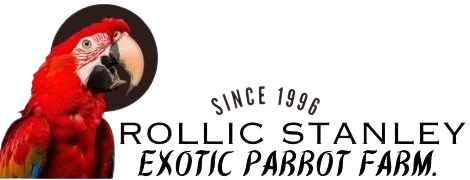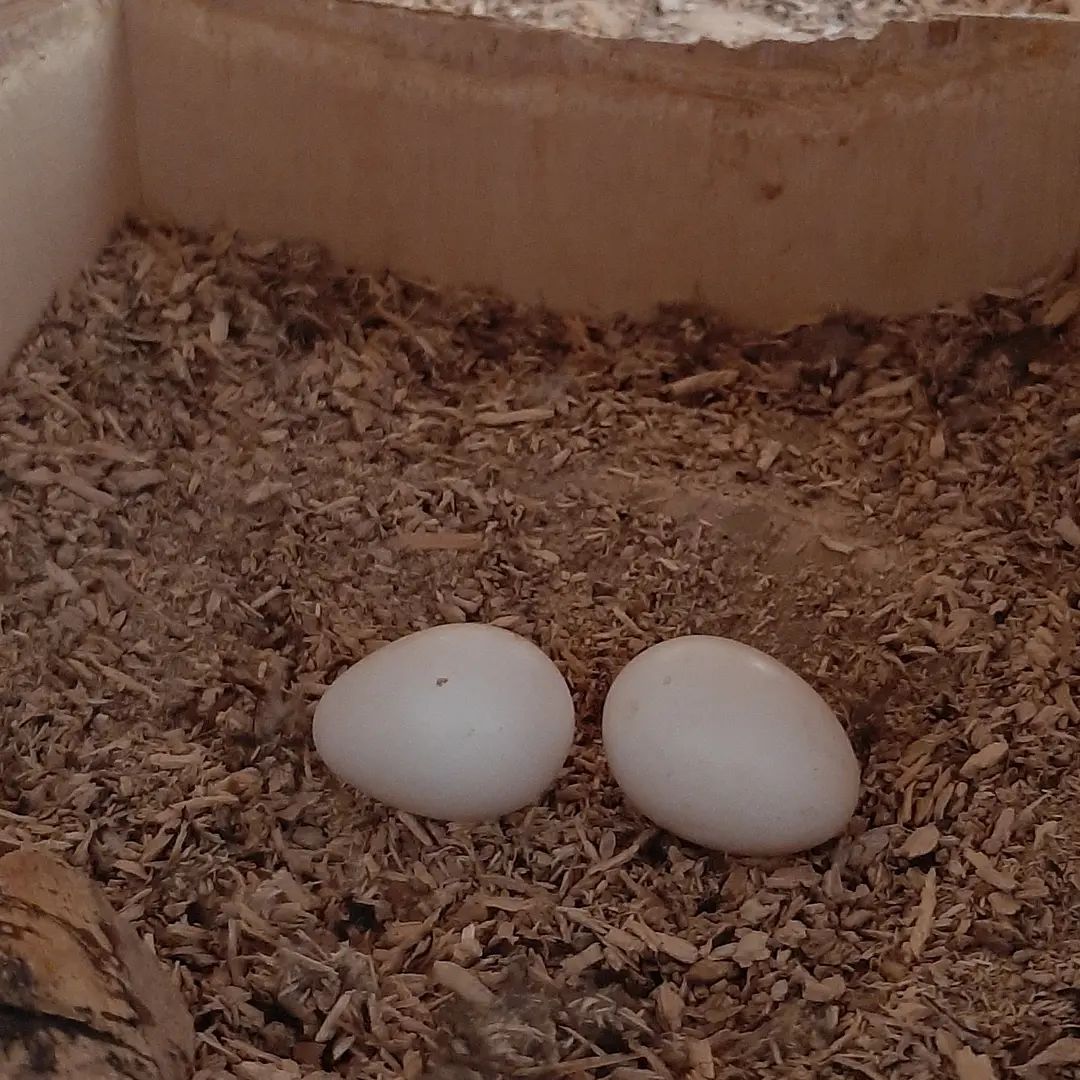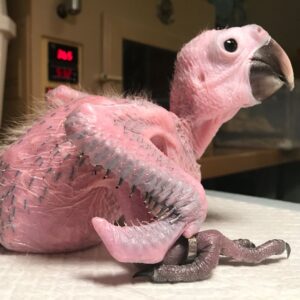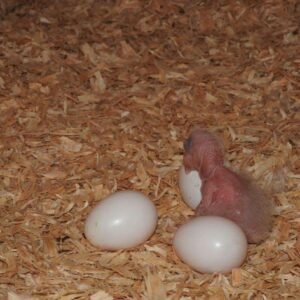Outline for “Viljakas papagoi munad ja tervislikku papagoi tibud”
| Main Topic | Subtopics |
|---|---|
| H1: Viljakas papagoi munad ja tervislikku papagoi tibud | Overview of the Importance of Fertile Parrot Eggs and Healthy Chicks |
| H2: Understanding Parrot Reproduction | General Overview of Parrot Breeding Behavior and Egg-Laying Process |
| H3: Optimal Environment for Parrot Breeding | Creating the Right Conditions for Breeding Parrots |
| H4: Factors Affecting Fertility in Parrot Eggs | Age, Health, and Environmental Conditions That Impact Parrot Egg Fertility |
| H5: Signs of Fertile Parrot Eggs | How to Identify Fertile Parrot Eggs |
| H6: Common Issues with Infertile Eggs | Reasons Why Some Parrot Eggs May Be Infertile |
| H7: The Role of Diet in Parrot Breeding Success | Nutritional Needs for Breeding Parrots and the Impact of Diet on Egg Fertility |
| H8: Incubating Parrot Eggs | Best Practices for Incubating Parrot Eggs to Ensure Healthy Chicks |
| H9: Hatching Process of Parrot Chicks | Stages of Hatching and How to Ensure Successful Hatch Rates |
| H10: How to Care for Newborn Parrot Chicks | Providing Proper Care for Baby Parrots to Ensure They Thrive |
| H11: Common Health Problems in Parrot Chicks | Recognizing and Treating Health Issues in Young Parrots |
| H12: Socialization and Development of Parrot Chicks | Importance of Early Socialization for Healthy Parrot Chicks |
| H13: Raising Parrot Chicks to Maturity | Steps for Properly Raising Parrots from Chicks to Adults |
| H14: The Role of Responsible Breeding in Parrot Conservation | How Ethical Breeding Practices Contribute to Parrot Conservation Efforts |
| H15: Frequently Asked Questions About Parrot Eggs and Chicks | Addressing Common Concerns Regarding Parrot Egg Fertility, Incubation, and Chick Care |
Long-Form Article: Viljakas papagoi munad ja tervislikku papagoi tibud
Get Lifetime Access to My Prompts Library: https://bit.ly/Lifetime_Access
H1: Viljakas papagoi munad ja tervislikku papagoi tibud
Parrot breeding is a fascinating process that requires careful attention to detail to ensure the production of fertile eggs and the successful raising of healthy chicks. Whether you’re a seasoned breeder or a parrot enthusiast looking to learn more, understanding the intricacies of parrot egg fertility and chick health is essential for success. This article delves deep into the factors affecting fertile parrot eggs and how to nurture healthy parrot chicks from egg to maturity.
H2: Understanding Parrot Reproduction
Parrots are unique birds with complex reproductive behaviors. Unlike mammals, parrots lay eggs, and their reproduction involves a courtship phase where the male and female bond. Parrots typically lay eggs in clutches, and the number of eggs varies depending on the species. To ensure the eggs are fertile, both the male and female must be healthy and have an optimal diet. After the eggs are laid, they require specific environmental conditions to develop properly.
H3: Optimal Environment for Parrot Breeding
The breeding environment plays a crucial role in the fertility of parrot eggs. Parrots require a quiet, stress-free environment with proper lighting and humidity levels to feel secure enough to breed. Cage placement, nesting materials, and temperature control are critical in creating the right conditions. Ensuring that the breeding pair has access to a secluded nesting area can increase the likelihood of successful egg fertilization.
H4: Factors Affecting Fertility in Parrot Eggs
Several factors can affect whether a parrot’s eggs are fertile. These include the age and health of the breeding pair, genetics, diet, and environmental conditions. Younger parrots may produce eggs that are less likely to be fertile, while older birds may experience reduced fertility. A balanced diet rich in vitamins and minerals is key to maintaining reproductive health.
H5: Signs of Fertile Parrot Eggs
Identifying fertile eggs early on is essential for ensuring they hatch successfully. A process called “candling” can be used to check the fertility of an egg by holding it up to a light source to observe any signs of development. Fertile eggs will display visible veins within the first few days, indicating that an embryo is developing inside.
H6: Common Issues with Infertile Eggs
Not all parrot eggs are fertile, and there are several reasons why an egg may not develop. Infertility can be caused by poor mating, environmental stress, or health issues in the breeding pair. Recognizing infertile eggs early allows breeders to manage expectations and adjust the breeding conditions for future success.
H7: The Role of Diet in Parrot Breeding Success
A parrot’s diet is directly linked to its reproductive success. Nutrient-rich foods such as fresh fruits, vegetables, and specially formulated parrot pellets should be provided. A well-balanced diet ensures that the female has the necessary energy and nutrients to produce healthy eggs. Calcium, in particular, is crucial for eggshell formation.
H8: Incubating Parrot Eggs
Incubation is a delicate process that requires precise temperature and humidity control. If the eggs are not kept under the right conditions, they may not hatch. Natural incubation, where the mother parrot sits on the eggs, is the most common, but artificial incubators can also be used in certain circumstances.
H9: Hatching Process of Parrot Chicks
Once the incubation period is over, the hatching process begins. Parrot chicks use a special egg tooth to break through the eggshell in a process called “pipping.” This can take several hours or even days. It’s important to monitor the chicks during this time to ensure they emerge safely and receive care from the mother or the breeder.
H10: How to Care for Newborn Parrot Chicks
Newborn parrot chicks are incredibly fragile and require a controlled environment with the right temperature and humidity. Breeders need to ensure that the chicks are fed a nutritious diet, often through hand-feeding with a special formula designed for baby parrots. Close monitoring is essential to detect any health issues early.
H11: Common Health Problems in Parrot Chicks
Parrot chicks can be prone to a variety of health problems, including respiratory infections, crop stasis, and developmental issues. Recognizing the symptoms early and seeking veterinary care can make a significant difference in the survival rate of the chicks. Regular check-ups are recommended to ensure they are growing and developing as expected.
H12: Socialization and Development of Parrot Chicks
Early socialization is critical for parrot chicks. The more interaction they have with humans and other birds, the better adjusted they will be as adults. This process should begin soon after hatching and continue throughout their development, helping them become well-rounded pets or breeders in the future.
H13: Raising Parrot Chicks to Maturity
Raising parrot chicks to adulthood requires dedication and attention to detail. As they grow, their diet needs to evolve from a soft, formula-based diet to solid foods. Their environment must be adjusted to encourage physical and mental development, ensuring they mature into healthy adults.
H14: The Role of Responsible Breeding in Parrot Conservation
Responsible parrot breeding plays a crucial role in the conservation of endangered parrot species. Ethical breeders ensure that their practices do not contribute to overpopulation or the illegal pet trade. By focusing on the health and well-being of the birds, breeders can help sustain parrot populations for future generations.
H15: Frequently Asked Questions About Parrot Eggs and Chicks
Q1: How can I tell if my parrot eggs are fertile?
A: You can check for fertility by candling the eggs a few days after they are laid. If veins are visible, the egg is fertile.
Q2: What is the best diet for breeding parrots?
A: A diet rich in fruits, vegetables, and high-quality pellets, supplemented with calcium and vitamins, is ideal.
Q3: How long does it take for parrot eggs to hatch?
A: Depending on the species, it typically takes between 24 to 30 days for parrot eggs to hatch.
Q4: What temperature should parrot eggs be incubated at?
A: Parrot eggs should be incubated at a temperature of around 37.5°C (99.5°F).
Q5: What should I do if a chick is having trouble hatching?
A: It’s best to let the chick hatch on its own, but if it’s struggling, consult a vet or experienced breeder for assistance.
Q6: How can I prevent health problems in parrot chicks?
A: Regular check-ups, a proper diet, and maintaining a clean environment are key to preventing health issues.
Fertile Parrot Eggs and Healthy Parrot Chicks
For parrot breeders and enthusiasts, ensuring the fertility of parrot eggs and the health of newborn chicks is essential. From proper incubation to providing the right care after hatching, several factors influence the success of breeding and raising healthy parrot chicks.
Understanding Fertile Parrot Eggs
A fertile parrot egg is one that has been fertilized by a male parrot and has the potential to develop into a chick. To check for fertility, breeders often candle the eggs, a process where a light is used to examine the contents of the egg for signs of development, such as veins or an embryo.
Factors Influencing Fertility
- Age of the Parrots: Breeding pairs should be at their prime age for fertility, which varies depending on the species.
- Nutrition: A balanced diet rich in vitamins, minerals, and calcium is crucial for the female to produce fertile eggs.
- Environmental Conditions: Parrots need a suitable nesting environment with the right temperature, humidity, and privacy for successful mating and egg-laying.
Incubation of Parrot Eggs
Once the eggs are laid, incubation is key to ensuring that they hatch into healthy chicks. Some parrots will incubate their own eggs, while in other cases, breeders may use an artificial incubator.
- Temperature: Eggs need a stable temperature, generally around 99°F (37°C), for optimal development.
- Humidity: Proper humidity, typically around 40-50%, is needed to prevent the egg from drying out and to ensure that the chick can hatch properly.
- Turning the Eggs: Eggs must be gently turned several times a day to prevent the embryo from sticking to the shell.
Hatching and Early Care of Chicks
Once the chicks begin to pip (crack through the shell), it’s essential to maintain a stable environment to support their hatching process. After hatching, the chicks are highly vulnerable and require careful monitoring and feeding.
- Brooder Environment: Newly hatched chicks need a warm, humid environment to mimic their natural nest. A brooder can help maintain the right conditions.
- Feeding: Hand-feeding may be necessary for some chicks, especially if the parents are inexperienced. High-quality hand-feeding formula is available for different parrot species.
- Health Monitoring: Regular check-ups are important to ensure the chicks are growing properly, free from infections, and developing normally.
Conclusion
Breeding parrots and caring for their eggs and chicks requires attention to detail, patience, and dedication. With the right knowledge and resources, breeders can ensure the birth of healthy parrot chicks, contributing to the conservation of rare species or simply the joy of raising these intelligent birds.




